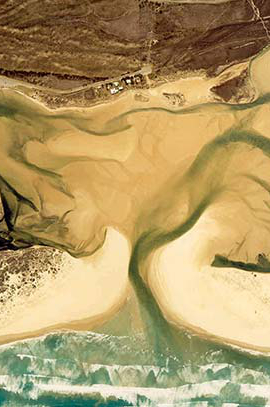MDBA seeks better links
 The Murray-Darling Basin Authority (MDBA) says it is shifting focus from infrastructure alone to strengthening connections between government agencies and communities.
The Murray-Darling Basin Authority (MDBA) says it is shifting focus from infrastructure alone to strengthening connections between government agencies and communities.
Recognising the deep impact of droughts, floods, and inconsistent water flow, the MDBA is looking to prioritise ‘soft diplomacy’ to improve water management by incorporating local insights into decision-making.
“True connectivity goes beyond just physical infrastructure, but also encompasses social and cultural connections,” the authority says.
Earlier this month, MDBA officials led a three-day tour of the Lower Darling region with representatives from federal and state water agencies.
The tour aimed to understand local challenges and gather input from farmers, Indigenous leaders, and environmental groups.
A critical topic was Dam 183, which supports agriculture and the environment.
The dam, plagued by maintenance and management issues, requires a clear determination of government responsibility for repairs to ensure its long-term functionality.
Water NSW and other agencies are tasked with resolving these questions.
The tour also highlighted deteriorating infrastructure along Three Mile Creek, where inconsistent flows are impacting landowners.
Collaboration between NSW and local stakeholders is expected to address this, with discussions on potential infrastructure replacement underway.
At Pooncarie, stakeholders from the South West Water Users Association stressed that water quality is essential not only for drinking but also for agriculture, tourism, and recreation.
The MDBA says it is focused on improving the delivery of the Basin Plan, with collaboration between agencies considered key to developing solutions that balance community, agricultural, and environmental needs.
“When agencies collaborate, they can break down bureaucratic barriers, leverage collective expertise, and tackle complex problems from multiple angles,” officials stated.








 Print
Print